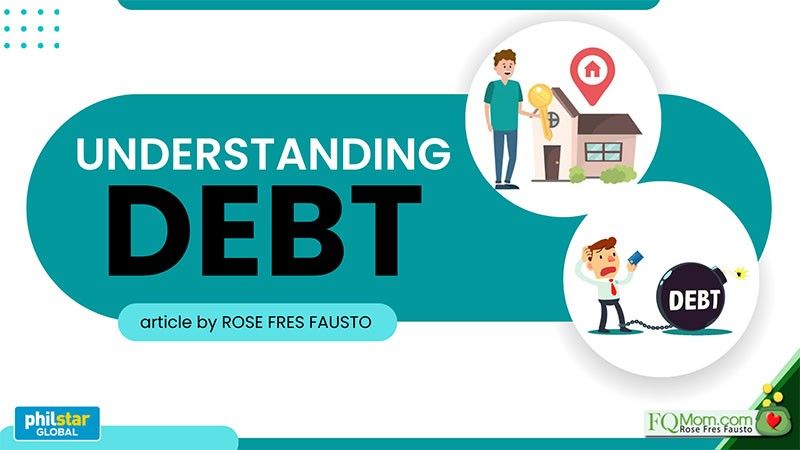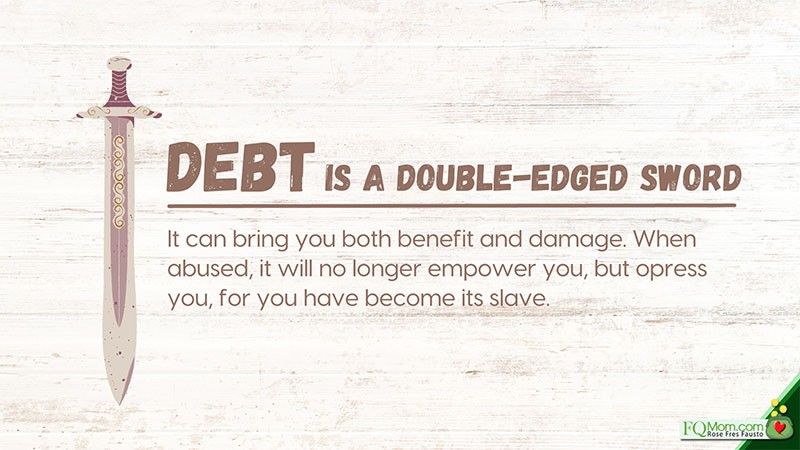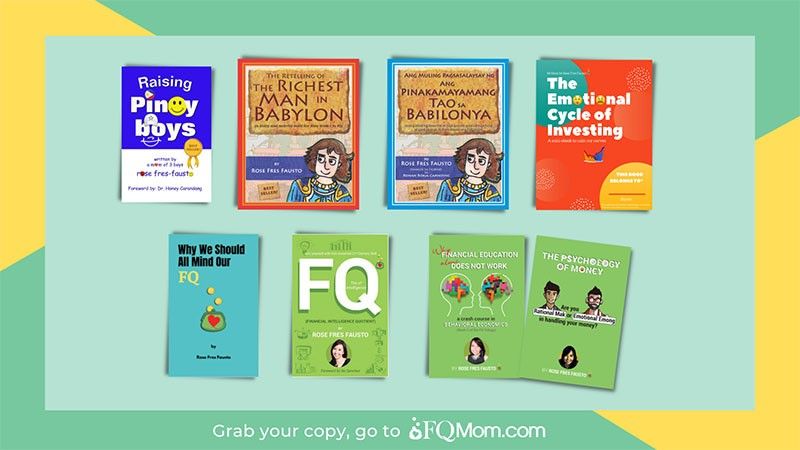Understanding debt


Almost all adults have experienced incurring some form of debt. Unfortunately, a good number of them do not have a full understanding of how debt works and how to handle it properly.
The dictionary defines debt as something, typically money, which is owed or borrowed. This definition connotes that it is something temporary and should be given back to the one you borrowed it from.
Another way of looking at debt is it’s a privilege. This is why another word for debt is credit, which also means praise (as in “Give credit where credit is due”). Now why is credit or debt a privilege? Because it allows you to make use of a sum of money, which is not yours, of course, with the agreement that repayment will be made. It is a privilege extended to you because of a certain level of trust and a positive assessment of your eligibility — i.e. your credit worthiness.
The origin of debt
Anthropologist, activist, and professor at the London School of Economics David Graeber wrote an interesting narrative on the origin of debt in his book Debt: The First 5,000 Years. His theory is that debt originated as early as 3500 B.C., long before the advent of coinage or money in 600 B.C., refuting the traditional explanation for the origins of monetary economies from primitive bartering system as laid out by Adam Smith, the Father of Modern Economics.
In his book, Graeber talks about how throughout our history indebtedness has led to unrest, insurrections, and revolts. He discusses the morality of debt. Among the issues raised are:
1 How people mired in debt would resort to using their children as payment
2. How the IMF and the big banks convinced the Third World dictators and politicians to take out loans while pocketing some in their Swiss accounts whose interest rates later on skyrocketed leading to the Third World Debt Crisis in the 1980s — Oh, yes the Philippines is mentioned as an example! Guys, we are still suffering from the havoc created by those loans until now.
3. How the sub-prime lending era crafted mortgages that made default inevitable, took bets on these defaults, sold them to institutional investors, turning over the responsibility of paying off debts to giant insurance conglomerates and eventually being bailed out by taxpayers
There are more issues raised and he traces them back in a historical narrative.
What we can gather from the above is that debt is really something to be careful with — be it personal, national, or international debt. In as much as debt can help us buy a house, expand our business, and grow our country, without having to put up 100% of the cash required, mismanagement and abuse of it can lead to personal and family tragedies, national and international catastrophes.
Good debt vs bad debt
There are good debts and there are bad debts. A litmus test that we can use to determine if a borrowing is a good debt is to answer the following questions:
1. Will the use of the debt proceeds improve my condition?
2. Are the terms and conditions of the debt fair? Can I really repay the debt and fulfill the other conditions without prejudice to no. 1? (In other words, will the borrower be in a better condition post debt as compared to pre-debt, even after fulfilling the loan’s terms and conditions?)
If the answer to the above questions are yes, then it is a good debt. An example of a good debt is a housing loan that you can afford. Your condition will be improved as you are able to buy a house for your family without putting up 100% of the cost, so that’s a yes for the first question. Banks normally require an equity portion of at least 20% of the cost. To satisfy the second set of questions, your cashflow from your income and other sources should be able to afford the debt service (principal plus interest), without sacrificing your other basic needs such as food, clothing, schooling, etc.
The sub-prime lending era that led to the world financial crisis in 2007-2008 abused the housing credit. Both households and major institutions disregarded the tenets of good debt because of greed and ignorance.
The credit card is another example. There are various advantages of using a credit card. For a prudent card holder, the litmus test questions above can be answered with yes. Advantages include not having to carry around cash when shopping, earning points from the use which have economic values, keeping track of purchases, etc. For as long as you pay the entire outstanding balance each month, you can honestly answer yes to the two questions.
Now the abuse happens once you are not able to pay the entire balance each month. The interest rates that credit card companies charge are way too high but you can’t seem to see it easily as the bigger figure that attracts your attention is the minimum balance on the billing statement. Then add the fact that most of the time, the purchases made are frivolous things, maybe luxuries that were prematurely purchased. (Always apply FQ Mom’s guideline in buying luxury: Buy luxury only if you can afford to buy 10 pieces of it.)
There are also loans that are acquired from family and friends, and from robo-lending firms. The principles to be applied on them are the same. Use the litmus test questions above.
Debt is a double-edged sword
Bear in mind that debt is a double-edged sword. It can bring you both benefit and damage. Debt is a privilege that you should handle with care. If you abuse this privilege, it will lead you to a miserable life. The debt which was supposed to empower you is now oppressing you, for you have become its slave.

ANNOUNCEMENTS:
1. Start by checking where you are in your High FQ Journey. Take the FQ Test now. Share the link with your loved ones.

2. To have in-depth understanding of FQ and improve your life in general, grab your copy of the FQ Books.




















